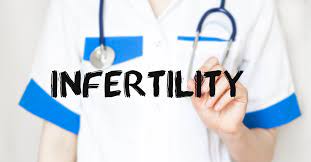Female fertility undergoes changes over time, and understanding these changes may help individuals make informed decisions about family planning. Among the influences is age, which progresses in tandem with several biological factors that impact conception. Here is how fertility shifts with age and what it means for those looking to have children:
Is There a Natural Decline?
A woman is born with all the eggs she will ever have in her lifetime. This limited number, estimated at one to two million at birth, gradually decreases over time. By puberty, the egg count drops to about 300,000. During her reproductive years, only a small portion of these eggs mature enough to be potentially fertilized, while the rest naturally deteriorate.
Equally important is the decline in egg quality as women age. Eggs from later reproductive years are more likely to have abnormalities. This decline affects both natural conception and assisted reproductive methods, such as in vitro fertilization (IVF). For women planning to have children, understanding this biological timeline is key to recognizing their fertility potential.
What Are the Conception Odds?
The chances of conceiving decrease gradually as women age. Younger women generally have a higher chance of conceiving in a single menstrual cycle. By the early 40s, this probability drops significantly, making pregnancy more difficult. This slow decline in fertility can often surprise women who aren’t aware of how much age affects their ability to conceive. Although age isn’t the only factor influencing fertility, it is a consistent and significant one.
Does Age Impact Chromosomal Abnormalities?
As women age, their eggs are more likely to develop chromosomal errors. These errors are the main reason for age-related infertility and miscarriages. They also contribute to increased risks of pregnancy complications and certain health conditions in older women. Understanding these potential issues helps individuals plan their families with realistic expectations. Although medical advances have improved the detection and treatment of chromosomal abnormalities, being aware of these factors remains key for maintaining fertility health.
What Lowers IVF Success Rates?
IVF is often seen as an option for many individuals experiencing challenges with natural conception. However, age also impacts its effectiveness. Success rates for younger women undergoing IVF are typically higher, with women under 35 experiencing greater probabilities of conception than those over 40.
A decline in egg quality and quantity with age influences the outcomes of IVF. Women pursuing treatment later in reproductive life may also require additional techniques, such as egg freezing or donor eggs. Understanding these variables allows individuals to approach fertility treatments with informed expectations.
What Changes Should I Know?
Being aware of how fertility naturally changes with age is a helpful tool for individuals and couples planning their futures. Consulting with healthcare professionals can offer clarity and personalized guidance. Options like fertility testing or egg preservation can offer more flexibility in planning a family. Gaining knowledge about fertility helps people make decisions that match their personal goals.
Find an Infertility Clinic Near You
Age is just one aspect of fertility, but one that plays a meaningful role in shaping reproductive health. Recognizing the natural decline in egg count and quality, along with their impact on conception and treatment outcomes, enables better preparation and proactive choices. While challenges related to age and fertility exist, there are pathways and support systems available to help individuals achieve their family-planning goals. Schedule an appointment with a fertility clinic today.
- Choosing the Right Plastic Surgeon for Your Cosmetic Procedure
- Understanding Different Types of Laser Treatments for Skin Rejuvenation
- Why a Family Dentist is Key for Maintaining Oral Health
- The Benefits of Regular Visits to a Wellness Spa
- Exploring the Emotional and Psychological Triggers of Eating Disorders


Leave a Reply